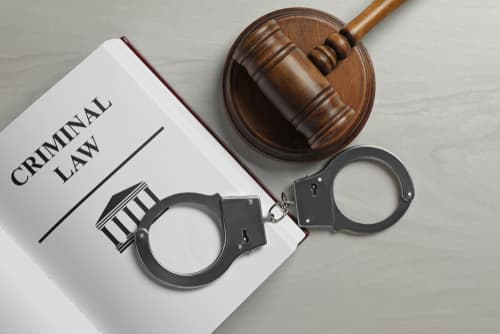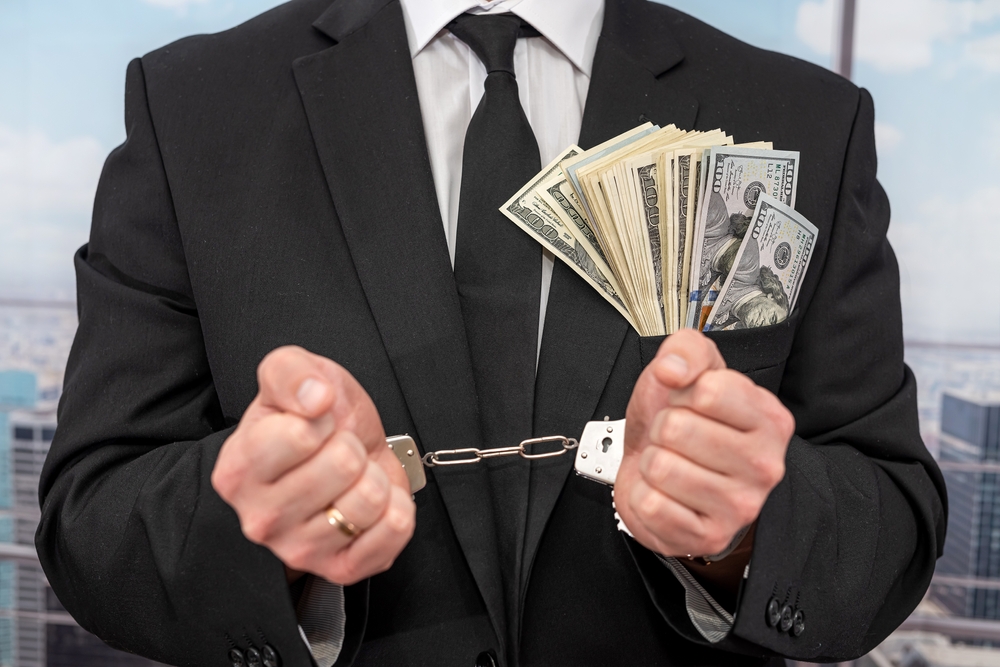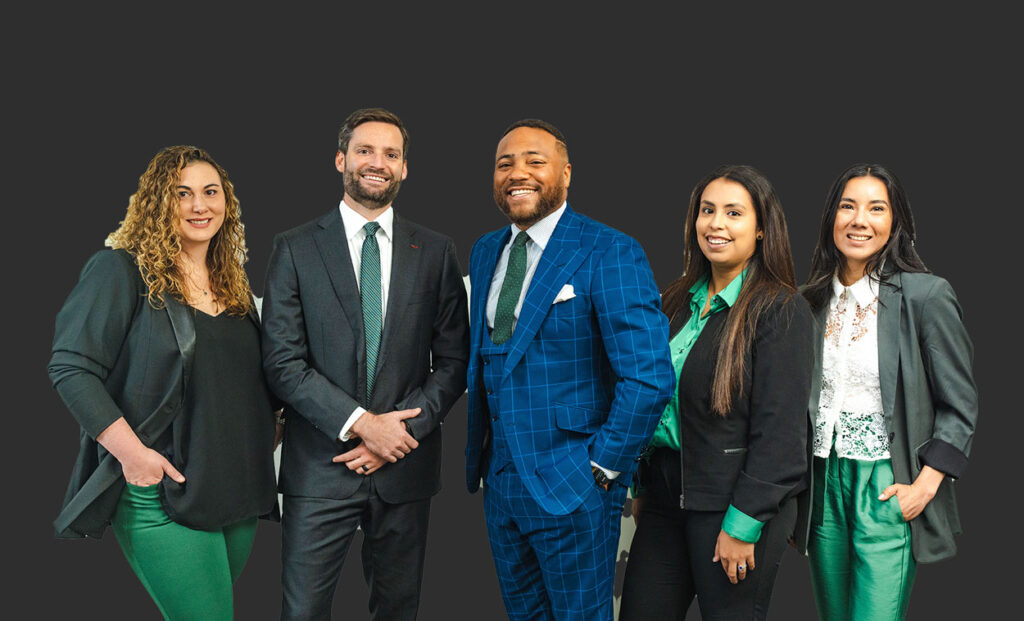Being arrested is scary. The world can feel like it is spinning out of control. You may be at home, worried and confused, with a pile of papers you do not understand. You might be asking yourself, "Do I need a lawyer? What do they even do?" These are fair questions. When you are under a lot of stress, you deserve clear answers.
The simple truth is that a criminal defense attorney handles many important tasks on your behalf. They are not just for the big, dramatic trials you see on TV. They are your guide and defender when you are in trouble. Their job is to stand between you and the power of the government.
A Criminal Defense Lawyer Protects Your Rights from the Start
You have rights from the moment they arrest you. But remembering or using those rights can be hard when you are scared and under pressure. Police officers ask questions, and it’s easy to say something unintended or something that can harm your case later on. This is where a lawyer’s help is so important.

One of your most important protections is the Fifth Amendment to the U.S. Constitution. This gives you the right to remain silent. It means you do not have to answer a police officer’s questions about what happened. A lawyer will immediately tell the police you will not answer any questions. This stops the interrogation. It creates a shield that prevents others from pressuring you into making a mistake. Think of it this way: the prosecutor can use anything you say against you. Your lawyer makes sure you do not give the other side ammunition to use.
Having a lawyer also sends a clear message. It shows the police and the prosecutor that you take this seriously and expect them to respect your rights. Many people feel like they have to be helpful and answer every question. A good attorney reminds you that your silence does not prove guilt. The American Civil Liberties Union (ACLU) provides guides on what to do because knowing your rights is the first step to protecting them. Hiring a criminal defense lawyer ensures you protect your rights from the start.
A Criminal Defense Lawyer Understands the System You Are Now In
A Criminal defense attorney understands this system because they work in it daily. They know the people involved, like the prosecutors and the judges. They know their personalities and how they usually handle certain types of cases. This is not about secret backroom deals. It is about having practical experience that helps them guide your case in the right direction. An experienced lawyer knows what arguments a particular judge might find persuasive or what information a prosecutor needs to see to consider a better deal.
A Criminal Defense Lawyer Investigates Your Case
When the police arrest you, they report what they believe happened. But the police report is just one side of the story. It is not always complete, and sometimes it is not even accurate. You need someone to dig deeper and find out the whole truth. A good criminal defense attorney acts as your private investigator.
Your lawyer will not just take the police report at face value. They will launch their investigation to uncover facts that strengthen your case. Here are some of the things your attorney will do:
- Get All the Evidence
- Look for Mistakes
- Talk to Witnesses
- Find New Evidence
This investigation is all about finding weaknesses in the prosecutor’s case and building the strongest possible defense for you.
A Criminal Defense Lawyer Negotiates for You
Many people think every criminal case ends in a big trial in a courtroom. Most cases settle before reaching trial. This process is often called "plea bargaining" or negotiation. This is another area where having a skilled lawyer is a huge benefit.
A good criminal defense lawyer is a good negotiator. They will take all the information they found during their investigation and use it to talk with the prosecutor. If your lawyer found mistakes the police made or evidence that helps you, they can use that as a reason the prosecutor might lose the case at trial. This can make the prosecutor more willing to offer a better deal.
The goal of negotiation is to get the best possible result for you. This can mean a few different things:
- Getting the case Dismissed: The best outcome is for the prosecutor to agree to drop the charges completely.
- Reducing the Charges: A lawyer can often convince a prosecutor to reduce a serious charge to a less serious one. For example, the law in every state explains the big difference between a felony and a misdemeanor. A felony is a very serious crime that can lead to prison time and the loss of rights, like the right to own a gun. A misdemeanor is less serious. Getting a felony reduced to a misdemeanor can have a huge, positive effect on your entire life.
- Arguing for a Lighter Sentence: Your lawyer can argue for a reduced sentence if a conviction is unavoidable. They can arrange for probation instead of jail time or for you to enter a special program.
Trying to negotiate on your own is very difficult. A prosecutor knows the law and the system far better than you do. Your lawyer levels the playing field and fights for a fair outcome.
A Criminal Lawyer Fights for You in Court
If you cannot settle your case with a fair agreement, you need someone prepared to fight for you at trial. This is where a criminal defense lawyer truly becomes your champion. Standing before a judge and a jury is not something anyone should do alone.
The Sixth Amendment to the Constitution guarantees you the right to have a lawyer for this very reason. It recognizes that having a skilled professional on your side is a basic part of a fair trial. The American Bar Association also explains that the role of a defense lawyer is to be your loyal defender.
At a trial, your lawyer will do many things:
Telling Your Side of the Story
The prosecutor is the first to speak when a case goes to trial. They will stand up and tell the jury a story. In their story, all the facts will point in one direction, making you look guilty. But that is only one side of the story. It might be missing important information, or it can twist the facts to create a picture that is not fair or complete. You need someone to tell your side of things; that person is your criminal defense attorney.
Your lawyer’s job is to be your voice. They ensure the jury hears more than just what the government wants them to hear. They do this in a few ways. It often starts with an “opening statement.” Throughout the trial, your attorney continues to build your story. They may call your witnesses to the stand—people who can provide an alibi, speak to your character, or explain the events in a way that helps your case. Your lawyer will also prepare you to testify if you decide it is right. They will guide you in answering questions clearly and truthfully so the jury hears directly from you.
Having a skilled professional guide you through this process is important because your lawyer tells the story clearly and convincingly, giving the jury a reason to see you as a person, not just a defendant.
Questioning the Other Side's Witnesses
After the prosecutor calls a witness to testify against you, your lawyer gets to ask that same witness questions. This is a very important part of the trial called “cross-examination.” It is your attorney’s chance to test the truthfulness and accuracy of what the witness just said. A good lawyer knows that just because someone says something on the stand does not make it true. They aim to show the jury why they should not believe everything the witness says.

During cross-examination, your lawyer will ask tough, specific questions to find weaknesses in the witness's testimony. They may be trying to show a few different things:
- The witness has a bad memory. A lawyer might ask about small details of the event to see if the witness remembers them correctly. If they get things wrong, it suggests their memory of the whole event might be flawed.
- The witness had a poor view. Was it dark outside? Was their view blocked? Were they far away? A lawyer can bring out these facts to show that the witness may not have seen what they think they saw.
- The witness is biased. Does this person have a reason to dislike you? Are they getting a special deal from the prosecutor in exchange for their testimony? A good attorney can expose these motivations to the jury.
- Their story has changed. Your lawyer will have copies of the witnesses' statements for the police. If the witness says something different in court, your lawyer will point it out to show that they are not being consistent.
This process requires a lot of skill. It is about carefully poking holes in the prosecutor’s story, one witness at a time. It is one of the most powerful ways a lawyer can defend you in court.
Challenging the Prosecutor's Evidence
In a criminal trial, the government cannot just show the jury whatever it wants. There are strict rules about what kind of evidence is fair and legal. Your criminal defense attorney knows these rules. A huge part of their job is to act as gatekeepers, fighting to keep unfair or illegally obtained evidence from being seen by the jury.
Your lawyer will carefully examine every evidence the prosecutor wants to use. If they spot a problem, they argue to the judge to throw out the evidence. This can happen for many reasons:
- An Illegal Search: The police need a valid reason, and often a warrant, to search your property. If they searched your home, car, or person illegally, your lawyer will file a motion to suppress whatever they found. If the judge agrees, they exclude that evidence from being used against you.
- Problems with the Chain of Custody: When evidence is collected, it must be sealed, labeled, and tracked very carefully. If gaps or mistakes exist in this "chain of custody," a lawyer can argue that the evidence might have been tampered with or mixed up and is, therefore, unreliable.
- Unreliable Tests: Breathalyzers, Standardized Field Sobriety or other scientific equipment must be maintained and used correctly. If a machine malfunction or the tester lacks proper training, your lawyer challenges the results.
By challenging the evidence, your attorney can sometimes get key pieces of the prosecutor’s case thrown out before the jury hears about them. This can seriously weaken the case against you and is a defense you cannot manage without a trained legal professional.
The Main Goal: Creating Reasonable Doubt
Everything a lawyer does at trial—telling your story, questioning witnesses, and challenging evidence—is done for one main reason: to create reasonable doubt. This is perhaps the most important concept in the entire American justice system.
In a criminal case, you do not have to prove you innocent. Instead, the prosecutor can prove you are guilty “beyond a reasonable doubt.” This is a very high standard. This means they must convince every jury member that their version of events is the only one that can be true.
Your lawyer’s job is to show that there is another reasonable explanation or that the prosecutor’s case is not as solid as it seems. They are building doubt, piece by piece. For example:
- If a witness shows faulty memory, that raises doubt.
- If your story provides a reasonable alibi, that creates doubt.
- If a key piece of evidence gets thrown out, that creates doubt.
The jury does not have to believe you are 100 percent innocent to find you "not guilty." They only need to have a reasonable doubt about the prosecutor's case. Your attorney focuses the entire trial strategy on building and strengthening doubt in the jurors' minds. This is the path to winning your case and a path that a skilled criminal defense lawyer can walk.
An attorney in court ensures you speak up and present a strong defense.
The Decision to Hire a Criminal Defense Lawyer Is Your First Step to a Fair Fight
If you are facing criminal charges, you are in a serious situation. The government has a lot of resources, and the legal system is not easy to understand. But you do not have to go through it alone.

A criminal defense attorney does more than just know the law. They protect your rights. They investigate the facts. They understand the system, and they negotiate on your behalf. If needed, they will stand up and fight for you in court. They are your guide, your defender, and your best resource for getting through this difficult time.